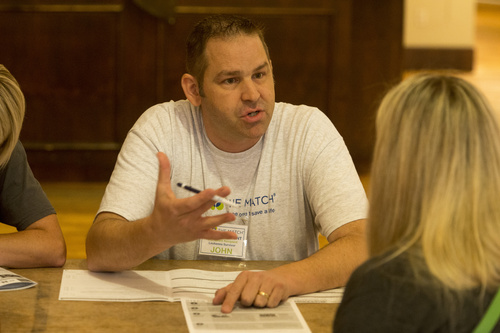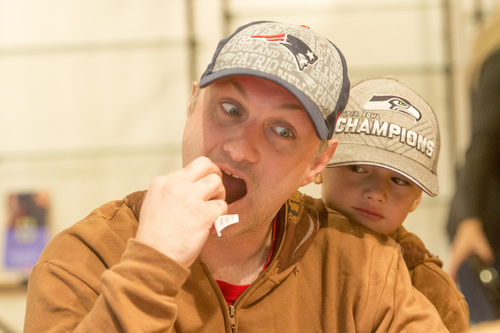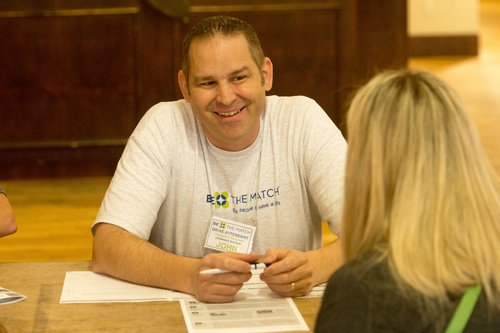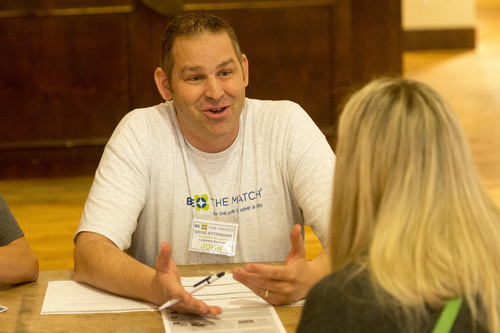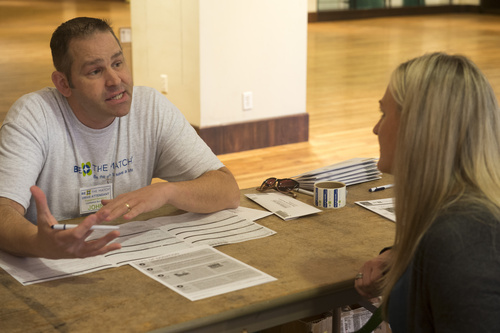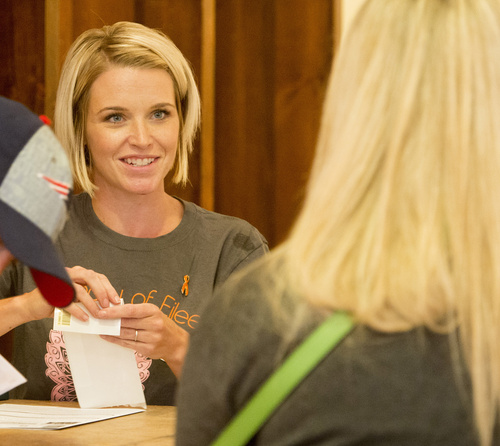This is an archived article that was published on sltrib.com in 2014, and information in the article may be outdated. It is provided only for personal research purposes and may not be reprinted.
Eileen Wilkinson was diagnosed with leukemia in mid-June. A little over six weeks later, she died from a pulmonary embolism before getting the bone marrow transplant she needed.
After Wilkinson's death, her sisters formed Team Eileen, aimed at helping to sign up people for Be The Match, a national bone marrow donor registry designed to connect potential donors with patients in need of transplants that could save their lives.
"Really, for us it's kind of the personal aspect of losing a loved one to something that came out of nowhere and how devastating it is to the entire family," said Wilkinson's older sister, Catherine Mangum. "Bone marrow is the key to saving a life."
Despite rainy skies throughout the day, the registration drive at The Gateway mall Saturday added three dozen people to the registry and raised $1,100 for the organization.
The Be The Match registry currently has about 11 million members and there are 26 million people on various registries worldwide.
Those who sign up have their cheeks swabbed so their DNA can be screened. One in 40 will be a potential match for a patient in need and will have further blood tests to verify the match. Ultimately, only 1 in 500 will be a donor.
Even with those odds, the registry has paired more than 60,000 donors to patients since 1987, including more than 6,300 in 2013 alone, said John Philpott, the drive organizer with the National Marrow Donor Program and himself a leukemia survivor, thanks to a bone marrow transplant.
"It's great to be able to go to work every day for an organization that provided me the donor who saved my life," said Philpott, who had a rare form of leukemia called multiple myeloma and got his transplant 16 months ago.
Even with so many people on registries, Philpott said, there are still patients who never find a match. Only about half get the transplant they need, due to the lack of a matching donor or access to health care, or declining health.
Finding matches is particularly difficult for minority patients, because only about 28 percent of the people on the Be The Match list are minorities, and there is a greater likelihood of finding a match with a donor with similar racial or ethnic heritage.
Wilkinson's family also held a silent auction to raise money for the donations, since it costs about $100 to add and maintain a name on the registry and the donors do not have to pay for the medical procedures.
"It's just a way to move forward and help sign up donors and save a life," said Dona Crowne, Wilkinson's twin sister. "Honestly, I just want her back and I can't have her back. But if we can save a life through this drive, regardless of how she died, that's the best thing you can leave behind."
Twitter: @RobertGehrke —
Learn more
O Read more about the Be The Match registry at http://bethematch.org.


